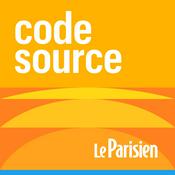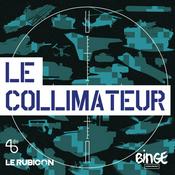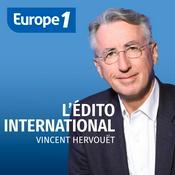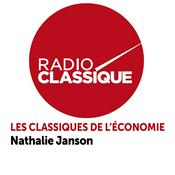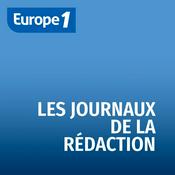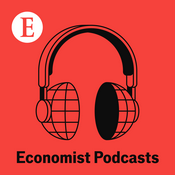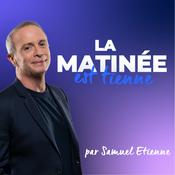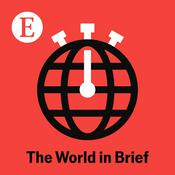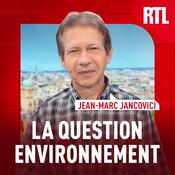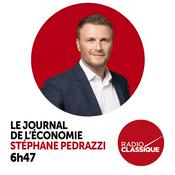144 épisodes
- Today on Upstream, we’re sharing Erik Torenberg conversation with Samo Burja where they discuss the Bronze Age collapse, technological advancements in ancient civilizations, and the nuanced history of the Roman Empire, along with a detailed analysis of contemporary geopolitical dynamics, particularly focusing on the Russian-Ukrainian conflict and its implications for global power structures.
—
📰 Be notified early when Turpentine's drops new publication: https://www.turpentine.co/exclusiveaccess
—
RECOMMENDED PODCAST:
🎙️Live Players
Samo Burja and Erik Torenberg provide analysis of the news and case studies of Live Players, as well as key institutions and technologies that make up the global power landscape.
Apple: https://podcasts.apple.com/us/podcast/live-players-with-samo-burja-and-erik-torenberg/id1718925188
Spotify: https://open.spotify.com/show/5fbMTkHBnom1JIBWYNVBK1?si=01ed191c74264f55
Youtube: https://www.youtube.com/@LivePlayerswithSamoBurja
—
SPONSORS:
☁️ Oracle Cloud Infrastructure (OCI) is a single platform for your infrastructure, database, application development, and AI needs. OCI has four to eight times the bandwidth of other clouds and offers one consistent price. Oracle is offering to cut your cloud bill in half. See if your company qualifies at https://oracle.com/turpentine
💥 Head to Squad to access global engineering without the headache and at a fraction of the cost: head to https://choosesquad.com/ and mention “Turpentine” to skip the waitlist.
—
LINKS:
Bismarck Analysis: https://brief.bismarckanalysis.com/
—
X / TWITTER:
@samoburja
@eriktorenberg
@turpentinemedia
—
HIGHLIGHTS FROM THE EPISODE:
The Bronze Age collapse demonstrates that advanced civilizations can experience technological backsliding, countering the idea that knowledge only accumulates.
Despite technological advancement in some areas like Greek fire in the Byzantine Empire, the Bronze Age collapse shows entire civilizations and technologies can be lost.
The Bronze Age collapse (around 1000 BC) is documented in both written sources (Hittite tablets) and archaeological evidence showing destruction layers across multiple regions.
The Hittite Empire, once a major power rivaling Egypt, was completely forgotten until its rediscovery in the 19th century.
During this collapse, entire civilizations vanished, metalworking was lost in some places, and Greece lost literacy for about 400 years.
Even decentralized systems can be fragile, as demonstrated by how trade route disruptions led to bronze scarcity and eventual societal collapse.
From 1991 to 2014, the world lived under US hegemony before Russia began expanding again with the annexation of Crimea.
Samo predicts giant nations like the US and China will have strong interests but won't necessarily impose their systems on smaller countries.
Europe's decline could be reversed if it adopted a more federal and flexible system similar to the Swiss Confederacy.
Eastern European countries like Estonia, Poland, and Hungary present interesting possibilities for governance experiments.
Regarding Russia-Ukraine, Samo predicts Russia will ultimately gain territory while Ukraine loses it, with Western support for Ukraine likely to weaken over time.
On historical narratives, Samo suggests prehistory was much more violent than often portrayed by anthropologists in recent decades.
Samo challenges academic narratives about colonization, arguing Spanish rule was an improvement over Aztec human sacrifice practices.
North America likely had multiple rises and falls of civilization that remain undiscovered partly due to political motivations in archaeology.
Hosted by Simplecast, an AdsWizz company. See pcm.adswizz.com for information about our collection and use of personal data for advertising. - Today on Upstream, we’re sharing Erik Torenberg conversation with Samo Burja on this week’s Live Players. They discuss the potential industrial revolutions in history, particularly in the Roman Empire and Song Dynasty China, their technological advancements, economic factors, and the reasons these revolutions didn't reach full fruition.
—
📰 Be notified early when Turpentine's drops new publication: https://www.turpentine.co/exclusiveaccess
—
RECOMMENDED PODCASTS:
🎙️Live Players
Samo Burja and Erik Torenberg provide analysis of the news and case studies of Live Players, as well as key institutions and technologies that make up the global power landscape.
Apple: https://podcasts.apple.com/us/podcast/live-players-with-samo-burja-and-erik-torenberg/id1718925188
Spotify: https://open.spotify.com/show/5fbMTkHBnom1JIBWYNVBK1?si=01ed191c74264f55
Youtube: https://www.youtube.com/@LivePlayerswithSamoBurja
—
SPONSORS:
☁️ Oracle Cloud Infrastructure (OCI) is a single platform for your infrastructure, database, application development, and AI needs. OCI has four to eight times the bandwidth of other clouds and offers one consistent price. Oracle is offering to cut your cloud bill in half. See if your company qualifies at https://oracle.com/turpentine
💥 Head to Squad to access global engineering without the headache and at a fraction of the cost: head to https://choosesquad.com/ and mention “Turpentine” to skip the waitlist.
—
LINKS:
Las Medulas in Spain: https://whc.unesco.org/en/list/803/
Monte Testaccio in Rome: https://www.historyskills.com/classroom/ancient-history/monte-testaccio/?srsltid=AfmBOoonzF0CVGKjzUFs46kkI9fZ-FVcBTDOMAVs8vtFcxH4iKcNx09f
Bismarck Analysis: https://brief.bismarckanalysis.com/
—
X / TWITTER:
@samoburja
@eriktorenberg
@turpentinemedia
—
HIGHLIGHTS FROM THE EPISODE:
The podcast explores "failed industrial revolutions" not widely recognized in history.
Human economic progress isn't constant but cycles between prosperity and decline.
The Roman Empire had its own industrial revolution unlike our modern conception.
Water power was extensively used by Romans for milling, metalwork, and stone cutting.
Romans built complex waterwheel systems and engineering works for power generation.
Heron of Alexandria demonstrated steam power principles in experimental devices.
Roman metal production was so vast it left pollution signatures in Greenland ice cores.
Monte Testaccio in Rome indicates industrial-scale production of millions of amphoras.
Romans mass-produced standardized pottery, glassware, statues, and military equipment.
A sophisticated Roman consumer economy existed with a significant middle class.
This era remains underappreciated partly due to concerns about interrupted progress.
Hollywood misrepresents the era, omitting the "steampunk" mechanical sophistication.
Cities like Alexandria were major production centers with extensive trade networks.
Romans might have adopted steam power had they needed to mine more coal.
Song Dynasty China represents another technologically advanced society that fell.
Large-scale water shipping appears crucial for all historical industrialization.
Industrial revolutions plateau when non-technological growth fails to keep pace.
The Hellenistic era, especially Alexandria, is described as modern science's birthplace.
Hosted by Simplecast, an AdsWizz company. See pcm.adswizz.com for information about our collection and use of personal data for advertising. - This week, we’re featuring a panel discussion from the 2025 Hill and Valley Forum with Josh Wolfe (Lux Capital), Senator Jack Reed (RI), and Qasar Younis, Founder and CEO, Applied Intuition They address talent attraction and retention, China's espionage and surveillance state, immigration policies, dual-use technologies, and the challenges and strategies in defense innovation and data security in AI and autonomous vehicles.
—
📰 Be notified early when Turpentine's drops new publication: https://www.turpentine.co/exclusiveaccess
—
RECOMMENDED PODCASTS:
🎙️The Hill & Valley
The Hill & Valley podcast gives you an insider's look into tech and government, hearing from founders and operators of generational tech companies, elected representatives and policymakers, and more.
Spotify: https://open.spotify.com/show/39s4MCyt1pOTQ8FjOAS4mi
Apple: https://podcasts.apple.com/us/podcast/the-hill-valley/id1692653857
Youtube: https://www.youtube.com/@HillValleyForum
—
SPONSORS:
☁️ Oracle Cloud Infrastructure (OCI) is a single platform for your infrastructure, database, application development, and AI needs. OCI has four to eight times the bandwidth of other clouds and offers one consistent price. Oracle is offering to cut your cloud bill in half. See if your company qualifies at https://oracle.com/turpentine
💥 Head to Squad to access global engineering without the headache and at a fraction of the cost: head to https://choosesquad.com/ and mention “Turpentine” to skip the waitlist.
—
LINKS:
The Hill & Valley Forum: https://www.thehillandvalleyforum.com/
The Hill & Valley Forum 2025 Agenda: https://x.com/zebulgar/status/1915128911274668364
—
X / TWITTER:
@SenJackReed
@qasar
@wolfejosh
@turpentinemedia
—
HIGHLIGHTS FROM THE EPISODE:
Josh Wolfe interviews Qasar Younis (CEO of Applied Intuition) and Senator Jack Reed about dual-use technologies.
Applied Intuition provides AI technology to moving machines with 18 of the top 20 global automakers using their systems.
The company works in both commercial and defense sectors.
Senator Reed notes adversaries like China can acquire equipment and repurpose it in novel ways.
Qasar emphasizes building competitive products while remaining vigilant about adversaries who don't play by the same rules.
Key policy levers include resources, human capital, academic partnerships, and faster deployment of innovations.
Chinese espionage is a concern, but policies should address adversaries without discouraging overall immigration of talent.
Qasar describes China's intense surveillance state that monitors all payments, movements, and activities.
Senator Reed expresses concern about data accumulation without sufficient guardrails.
Qasar argues for a middle ground between China's surveillance state and Europe's restrictive GDPR regulations.
After visiting China, Qasar observed fewer foreigners than before and believes companies are leaving due to overwhelming surveillance.
Qasar predicts in AI, like in mobile technology, value will be captured primarily by large players, both companies and countries.
Autonomy is where "AI meets the warfighter" and the US is still lagging in adopting this technology.
Increasing bureaucracy won't help the US compete; instead, having senior officials with AI experience will improve implementation.
Hosted by Simplecast, an AdsWizz company. See pcm.adswizz.com for information about our collection and use of personal data for advertising. E138: Palantir CEO Alex Karp & Rep. Ritchie Torres on Innovation & The West | Hill and Valley Forum 2024
26/4/2025 | 30 minAlex Karp, CEO of Palantir Technologies, and Congressman Richie Torres discuss higher education, Palantir's fearless culture, and the importance of contrarianism in driving innovation at the 2024 Hill and Valley Forum.
—
📰 Be notified early when Turpentine's drops new publication: https://www.turpentine.co/exclusiveaccess
—
RECOMMENDED PODCASTS:
🎙️The Hill & Valley
The Hill & Valley podcast gives you an insider's look into tech and government, hearing from founders and operators of generational tech companies, elected representatives and policymakers, and more.
Spotify: https://open.spotify.com/show/39s4MCyt1pOTQ8FjOAS4mi
Apple: https://podcasts.apple.com/us/podcast/the-hill-valley/id1692653857 Youtube: https://www.youtube.com/@HillValleyForum
—
SPONSORS:
☁️ Oracle Cloud Infrastructure (OCI) is a single platform for your infrastructure, database, application development, and AI needs. OCI has four to eight times the bandwidth of other clouds and offers one consistent price. Oracle is offering to cut your cloud bill in half. See if your company qualifies at https://oracle.com/turpentine
🕵️♂️ Take your personal data back with Incogni! Use code UPSTREAM at the link below and get 60% off an annual plan: https://incogni.com/upstream
💥 Head to Squad to access global engineering without the headache and at a fraction of the cost: head to https://choosesquad.com/ and mention “Turpentine” to skip the waitlist.
—
LINKS:
The Hill & Valley Forum: https://www.thehillandvalleyforum.com/
The Hill & Valley Forum 2025 Agenda: https://x.com/zebulgar/status/1915128911274668364
—
X / TWITTER:
@RitchieTorres
@RepRitchie
@turpentinemedia
—
HIGHLIGHTS FROM THE EPISODE:
Alex Karp and Congressman Richie Torres discuss higher education, Palantir's culture, and contrarianism at the 2024 Hill and Valley Forum.
Torres praises Karp for his fearlessness and moral clarity in a world of fear and moral confusion.
Karp attributes his outspokenness to a desire for cultural clarity, which he believes is essential for building disruptive products and attracting top talent.
Karp criticizes elite educational institutions for fostering dysfunction and antisemitism, viewing it as a betrayal of progressive values.
He describes the crisis in higher education as a return to a "pagan religion" that contradicts the principles of liberalism and cognitive clarity.
Karp emphasizes the importance of "non-playbook players" in the U.S., individuals who innovate without a set guide, a rare asset driving technological disruption.
He acknowledges tensions between Capitol Hill and Silicon Valley but believes their relationship is structurally better than in most countries.
Karp expresses confidence in the U.S. government's ability to adapt to rapid technological change, though it must improve procurement and focus on meritocracy.
He highlights the U.S.'s unique advantage in producing innovative tech companies, citing meritocracy, top immigrants, and elite schools as key factors.
In the U.S.-China tech arms race, Karp believes the U.S. is ahead but risks falling behind if elite institutions remain dysfunctional.
He addresses fears about generative AI, advocating for embracing it as critical for GDP growth and competitive advantage, while acknowledging the need for regulation.
Karp sees Palantir’s success as a model for creating a fairer, more equitable world and predicts the company will grow significantly in the next 20 years.
Hosted by Simplecast, an AdsWizz company. See pcm.adswizz.com for information about our collection and use of personal data for advertising.E137: AI Safety vs Speed: Helen Toner Discusses OpenAI Board Experience, Regulatory Approaches, and Military AI [The Cognitive Revolution]
24/4/2025 | 1 h 20 minThis week on Upstream, we’re releasing an episode of The Cognitive Revolution. Nathan Labenz interviews Helen Toner, director at CSET, about her experiences with OpenAI, the concept of adaptation buffers for AI integration, and AI's role in military decision-making. They discuss the implications of AI development, the need for regulatory policies, and the geopolitical dynamics involving AI competition with China.
—
📰 Be notified early when Turpentine's drops new publication: https://www.turpentine.co/exclusiveaccess
—
RECOMMENDED PODCASTS:
🎙️ The Cognitive Revolution
The Cognitive Revolution is a podcast about AI where hosts Nathan Labenz and Erik Torenberg interview the builders on the edge of AI and explore the dramatic shift it will unlock over the next decades.
Spotify: https://open.spotify.com/show/6yHyok3M3BjqzR0VB5MSyk?si=7357ec31ac424043&nd=1&dlsi=060a53f1d7be47ad
Apple: https://podcasts.apple.com/us/podcast/the-cognitive-revolution-ai-builders-researchers-and/id1669813431
—
SPONSORS:
☁️ Oracle Cloud Infrastructure (OCI) is a single platform for your infrastructure, database, application development, and AI needs. OCI has four to eight times the bandwidth of other clouds and offers one consistent price. Oracle is offering to cut your cloud bill in half. See if your company qualifies at https://oracle.com/turpentine
🕵️♂️ Take your personal data back with Incogni! Use code UPSTREAM at the link below and get 60% off an annual plan: https://incogni.com/upstream
💥 Head to Squad to access global engineering without the headache and at a fraction of the cost: head to https://choosesquad.com/ and mention “Turpentine” to skip the waitlist.
—
LINKS:
Helen Toner's appearance on the TED AI show: https://www.ted.com/talks/the_ted_ai_show_what_really_went_down_at_openai_and_the_future_of_regulation_w_helen_toner
Helen Toner's substack : https://helentoner.substack.com/
Additional recommended reads:
https://helentoner.substack.com/p/nonproliferation-is-the-wrong-approach
https://cset.georgetown.edu/publication/ai-for-military-decision-making/
https://www.lawfaremedia.org/article/ai-regulation-s-champions-can-seize-common-ground-or-be-swept-aside
https://www.economist.com/by-invitation/2024/05/26/ai-firms-mustnt-govern-themselves-say-ex-members-of-openais-board
—
X / TWITTER:
@hlntnr
@labenz
@eriktorenberg
@turpentinemedia
—
HIGHLIGHTS FROM THE EPISODE:
Helen Toner joined OpenAI's board in 2021, bringing AI policy expertise when AGI discussions were still uncommon.
She confirms that rumors about QStar contributing to the board's decision to fire Sam Altman were completely false.
Helen observes contradictions at OpenAI: safety-focused research papers alongside aggressive policy positions.
For AI whistleblowers, she recommends clear disclosure standards rather than vague reporting guidelines.
Helen introduced the concept of "adaptation buffers," noting that while frontier AI development gets more expensive, capabilities become cheaper to replicate once achieved.
Rather than focusing on non-proliferation, Helen advocates using adaptation time to build societal resilience (like improving outbreak detection).
She favors conditional slowdowns (based on risk mitigation) rather than arbitrary pauses or compute limits.
For military AI applications, Helen's research identifies three key considerations: scope (how tightly bound the system is), data quality, and human-machine interaction design.
Helen expresses skepticism about "AI war simulations," arguing military contexts have too many unknowns to be modeled like games.
She suggests the shift in AI CEOs' rhetoric about China competition is "the path of least resistance" to argue against regulation.
Helen acknowledges the difficulty of reaching stable international equilibrium around AI development with too many unknowns about what superintelligence would mean for political systems.
Hosted by Simplecast, an AdsWizz company. See pcm.adswizz.com for information about our collection and use of personal data for advertising.
Plus de podcasts Actualités
Podcasts tendance de Actualités
À propos de "Upstream" with Erik Torenberg
You’ll hear consequential ideas here first, and in the mainstream months later. Upstream is a curated nexus feed from the Turpentine podcast network, bringing you expert-level conversations hosted by some of the most compelling thinkers in the world including Noah Smith, Samo Burja, Byrne Hobart, Erik Torenberg, and Nathan Labenz.
Guests include Marc Andreessen, Balaji Srinivasan, Dario Amodei, Brian Armstrong, David Sacks, Sam Harris, Katherine Boyle, Curtis Yarvin, and many more unmissable conversations.
Site web du podcastÉcoutez "Upstream" with Erik Torenberg, C politique ou d'autres podcasts du monde entier - avec l'app de radio.fr
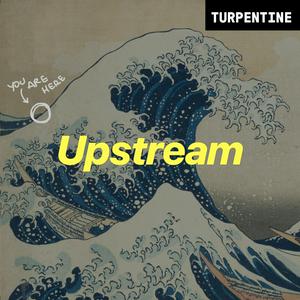
Obtenez l’app radio.fr gratuite
- Ajout de radios et podcasts en favoris
- Diffusion via Wi-Fi ou Bluetooth
- Carplay & Android Auto compatibles
- Et encore plus de fonctionnalités
Obtenez l’app radio.fr gratuite
- Ajout de radios et podcasts en favoris
- Diffusion via Wi-Fi ou Bluetooth
- Carplay & Android Auto compatibles
- Et encore plus de fonctionnalités


"Upstream" with Erik Torenberg
Scannez le code,
Téléchargez l’app,
Écoutez.
Téléchargez l’app,
Écoutez.






